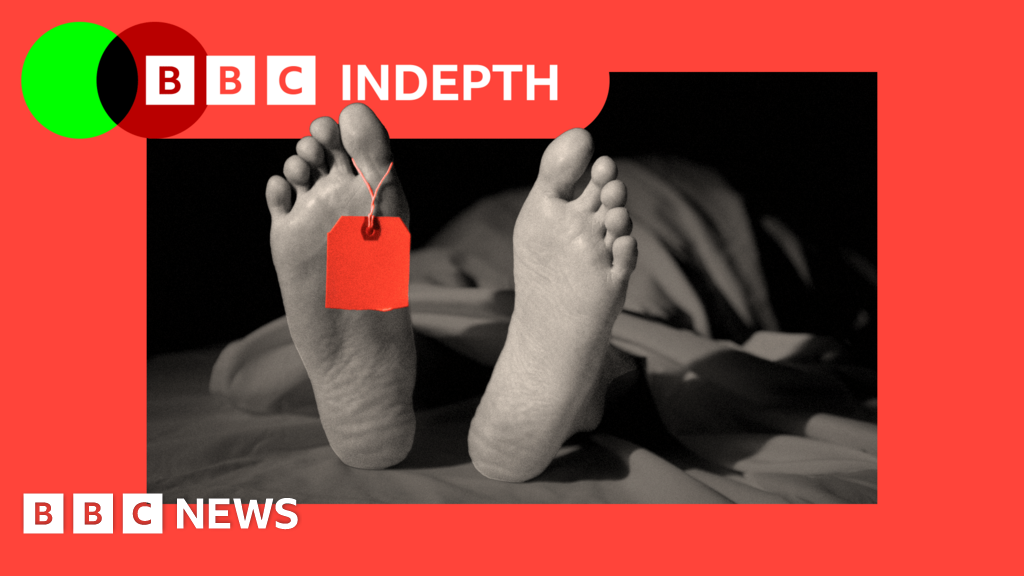Privacy Part 2: Virtual Private Networks (VPNs)
Virtual Private Networks can turn you into a ghost clicking a mouse – virtually untrackable. But there are gotcha’s you must be aware of. LINKS: Mullvad VPN Torguard VPN Originally posted 2022-07-12 19:37:01.
Will Dove 00:09 So here we are back with section two or Part 2 of our 9 Part Series with Oliver Ross of Liberty Lives on Protecting Your Privacy. In Part 1, Oliver gave us information on browsers and search engines. And today he's here to discuss VPN, or Virtual Private Networks. Oliver, thanks for being with us, again. Oliver Ross 00:28 Thank you for having me back. Will Dove 00:30 So virtual private networks, Oliver start by describing just what they are because I know a lot of people may have heard of them, but they don't really know what they are. Oliver Ross 00:38 Well, the simplest way of understanding it, you're gonna lose, obviously, some of the information in that way but it's easiest way for people to get what's going on. So the first step of everything is you as an individual, wherever you are, if you're using the internet, in your home, we're not going to include libraries or public internet for now, if you're purchasing internet, from your home, you're going to be provided with an IP address from whatever service provider you have. And that IP address is how you're going to be accessing the internet through. So you're going to search stuff up, all that information is going to be connected to that IP address, and that IP address, everything that goes through there, all that data can get taken up and used and sold by your internet service provider, if you don't have a layer of protection in between your IP address and your searches, everything's going to them and there's a lot of the privacy aspects become kind of useless, unless you're going really deep and you're going far past where we're talking. In this series, there's going to be data captured by your internet service provider. So the answer to that is a VPN, depending on the provider, they can have hundreds or 1000s of servers that they use. And you can select the server that you would want to connect to from any country off their list and all your data, instead of it going, appearing like it's coming from whatever your IP address is, it's going to appear like it's coming from that server in the Netherlands. So you're removing that area for your internet service provider to take that data and sell it. So then there's another layer of complexity, which we'll get to in a minute with the logging. But the first fundamental answer for VPN says that there they are removing that data capture point from your internet service provider. Will Dove 02:31 So allow me to attempt a simple plain English explanation for us older folks. I mean, I'm in my mid 50s. But I've been a web developer for a lot of my life. So I have more computer knowledge than most people my age. You can think of an IP address of - for those of us who are kind of old school and we grew up using phonebooks, your IP address is your computer's phone number. And so that's how it connects to you where a server knows to connect to your computer by that IP address, which is basically the equivalent of your computer's phone number. And when you go through a VPN, when it goes, when you connect, you're connecting through that VPN. So places that you connect to, they're not seeing your phone number, they're seeing the phone number of that VPN server, that virtual private network server you're connecting through. And so they can't tell that it's you. Oliver Ross 03:16 Exactly. It's like you got a party line instead of your normal phone number. Will Dove 03:19 Now, that leads me to a question though and I mean - and we've - this is a scene that everybody's seen in movies, where somebody, some spy makes a phone call, and they've routed it through all these different numbers. And then you see the people sitting in the control room who were tracing it back trying to find where the original call is coming from, I have no idea if that's science fiction or not. But it does lead to the question, Would it be possible for them to track back to actually find your, your actual IP address? Oliver Ross 03:45 Potentially, depending on the provider you're using. But that's not the easiest approach to getting your data. There's ...think about it as people want to take the path of least resistance and tracking all the way back to internet service provider, when they could instead depending on the policies of the VPN provider, track you just right away to the server that you're using. They're not going to bother with the extra work if you get the same answer. In a shorter path, theoretically, if you're using a really bad VPN, er, it's probably pretty easy. You have to know the policies of what your VPN is up to. But assuming that you're using a good quality VPN, you're a paid service. And we'll talk in a few minutes about that. I use one have been using it for years, assuming you're using a pretty good quality VPN, is this something like what we've discussed in the past where you're protected from the algorithms, but if they actually had a human being sit down and try to track it back, maybe they could do it that way? Probably. I wouldn't put it past anybody who really wants to do that type of data capture. Again, though, that's probably the least of your concerns in that situation, because they're probably going to be at your door before you know it. Will Dove 05:05 Anyway. So the conclusion then is, as long as you're using a good quality VPN, non logging, and we'll talk about that in a few minutes, the odds that they can track it back to you and figure out who you are, accessing those things through your browser are practically speaking, zero. Oliver Ross 05:25 It's not worth it. That's, that's what it is. It's just it's not worth the time and energy that are being expended when it's while it's much easier to track you down, probably using your phone number anyway. Will Dove 05:36 So unless you're the head of a terrorist cell planning to blow up the parliament buildings, you probably don't need to worry about it. Oliver Ross 05:43 Yeah, I should have hoped if unless for some reason, everybody lines up being on some target list. And you never know what could happen in the future, mind you. But that's not a concern. Don't think about that being the main concern. Will Dove 05:57 Okay. So let's talk about logging versus non logging. This is something we had discussed in one of our previous interviews. But let's go over it again, here. Oliver Ross 06:04 If you're going to be using a VPN, you have to really know and you have to know, part of the protocols in this regard is knowing where they are located, like their main servers are located. So the difference, the big difference here, we have two different protocols that usually run through VPNs. And there's all these different layers on top of that, which, if you went through the specific VPN provider, you would see what types of added things that they've - you may find completely useless, somebody may find useful, not really important for this discussion. But the two main points here are if they're logging, or if they are non logging, simply put, if they log your data, all that data that you're searching, instead of being saved on your internet service providers, servers, and then selling it from there, all you all they're doing is it's getting saved on whatever server you're accessing it from, and it can get sold from there. Will Dove 06:57 And the VPN server does know your IP address because you connected to it. Oliver Ross 07:01 They know everything that they would need, and they could sell it all off without any problems. And then the counter to that is a non logging VPN. And they do the exact opposite to what a logging one would do. The data is erased from their servers when you're searching. Now there is another layer in that a whole bunch that you should be keeping in mind, there might be a period potentially, and you have to read the fine print of these companies where they could say they're not logging, but they could save the data for 10 minutes, an hour, two days, two weeks, whatever they want to say. They could still call themselves potentially through some legalese "Non Logging" might be saving your data for a short period of time or a long period of time. Some email providers do that when you're deleting stuff. Will Dove 07:50 So you have to read the fine print. Oliver Ross 07:53 Know what you're signing up for. Will Dove 07:54 So what VPN services would you advise and I think we can start with the blanket statement, don't use a free one. You pay - you get what you pay for. Oliver Ross 08:04 There is a couple of decent free ones. But when you're what I mean by decent is they have good protocols involved, but they are really slow. Like if you want to actually use the internet and you want to watch videos, it's probably not a good idea to be using them. But if you're trying to do a search, or if you want to add a couple of layers into the mix, for certain things, you could always - you could always double or triple up on VPNs if you wanted to, and but again, you're going to end up throttling your internet. But there's that option in the bunch, the one that I really like now, and hopefully this doesn't age really badly because if in six months it does, I'll be very upset, is Mullvad VPN. So M-U-L-L-V-A-D, they have all the policies that you would want from a VPN provider. On top of that, they don't ask for an email address or anything. They don't save your IP address in any way, they don't. They ask for - all you get is an account number. And you could pay for an anonymous methods anyway. So there's no, there's nothing in the bunch of everything that they're doing that should as of now connect, be it a necessity to connect back to you. If you want to pay it from your bank account. Well, good luck, but you really want to do that? All right. But if you don't have to, you can do it in a private way. Will Dove 09:32 Right. So to contrast, I think we call it Mullvad With TorGuard, which is the one that I've been using for years as you've just said with Mullvad you can pay with cryptocurrency they don't even ask for an email address even they don't know who you are TorGuard. I paid them $10 a month. I've been using them for years but they have my email address. I paid them through my bank account. So TorGuard does know who I am. And so yes, I suppose it's possible that if they got some sort of court order to divulge some of my information. Okay, maybe. But they're non-logging. So I'm not sure what, what they would be able to find out from that. Oliver Ross 10:07 What they might have on file, though, is your IP address anyway, I'm not sure you'd have to look at their policies, they could they because you have to send them the payments anyway. And you started by having a without a user without a VPN. So you would have access to at least one time, at the very beginning, from your from an IP address. It's really important when you're deciding the VPN, that you look at their policies. And that's just I can't tell you offhand because I have no idea. Will Dove 10:36 Right. So everybody has to do their own homework, we're just providing them with the basic framework of the information they need to be looking into. So one little side note, this has nothing to do with security. But it is a little interesting side note about VPNs folks, if all of us have encountered these situations where you tried to access some content online, usually a video and it will say this isn't available in your country. Well, you can go through a VPN server in a different country, and you can access it that way. Oliver Ross 11:01 Well, most of the time, sometimes, sometimes if you're using certain VPNs, or certain servers, there are certain commonly used servers between VPN providers. And those servers, sometimes well are listed, they have record all these providers. So if you try to access it through whatever server it is, you might not get access to whatever you were looking for it. There are some companies that don't even like when you use a VPN at all. And they give you "404 errors" when you're accessing their websites. That should be a good sign to not be looking at their websites. Will Dove 11:40 Right. And I just I just wanted to throw in that little story because that was actually how I got into using a VPN myself. It wasn't about privacy. This was years ago. And I wanted my kids to be able to watch the Grey Cup game, which was blocked out in Canada, and we don't have cable. So I had no way to access it. And I thought, Well, wait a minute, what if I go through a VPN, which worked, I installed TorGuard, I went through a server in Europe, and I was able to do pay per view for the game in Canada. So everything I did, folks was completely legal, I paid to watch the game. It's just coming from my IP address or my server, my internet provider in Canada. I couldn't access it. There was no way to watch the game here. So I had to fool it into thinking I was coming from another country. But that's a side note. So it's not the most important part of using the app. The most important part, we're talking about privacy here. I just thought it was an interesting story. Oliver, what are there any, you know, sort of gotcha moments that people should be aware of because now we've put together two things, if they've watched the first one, we've talked about browsers and search engines, and now you combine that with a VPN, you're basically a ghost clicking a mouse, they don't know who you are, it's they would, they would have to go to extreme lengths to try to figure out who you are. Oliver Ross 12:56 That would be the way I would put it, they could theoretically figure out who you are, if they want to put the brain power in but you're making it - you're doing more to protect your privacy than the majority of people are. So you've done a lot already to make yourself appear like you're not that Will Dove 13:13 Basically, I think what we're seeing is that this person has done as much as a regular person could be expected to do isn't saying expert in internet privacy like you are. Oliver Ross 13:21 If these are easy solutions that can be implemented pretty quickly, without having to dig into ridiculous alternatives that you have to do even more work for to use. Will Dove 13:32 Now, I think we do have to reiterate, what we talked about in our first interview was even if you've gotten saved, you've installed the Brave browser, you didn't import any of your passwords or logins from your other browser. You've got your VPN running. Well, if you log into your Google account, you just defeats the purpose. Oliver Ross 13:51 Does everybody want your data? Remember that and if you keep that in mind, when you're using your computer, you're at the very least change some of your decisions, you might not catch everything. But if you keep in mind, they want what you've got, and they want to know who you are. They want to have it all tabulated. Ready, then at least there you've got some something in your mind about how it's all working out. Will Dove 14:16 So are there any other aspects of VPNs our viewers should be aware of? Oliver Ross 14:19 Don't assume ones that are commercially marketed regularly like Express or Surf Shark or any of these other ones or even Nord. I've heard different people give me different stories about Nord. I haven't investigated, I have myself because I already like the ones that I'm using. But you have to be sure if you're using it for privacy purposes, you have to know what you're using it, you have to know what they're actually saying. Okay, and you have to keep an eye on it. And if you're doing that, then that's the best you could do with a VPN. Will Dove 14:52 And you, I think the one that you had mentioned was Mullvad. Oliver Ross 14:55 Yeah, Mullvad is, Snowden recommends that, lots of people recommend it as one of the more private ones. Will Dove 15:02 Okay, so folks, as always, with my interviews, you will find directly beneath this interview the link to Mullvad. I'll also give you the link to TorGuard, which is the one I use. But as we've discussed, it's less secure than Mullvad is. So you have to make your own decision about just how far you're willing to go to protect your privacy. But both of those links will be there. Oliver, thank you again for providing this important information. Oliver Ross 15:24 Thank you













